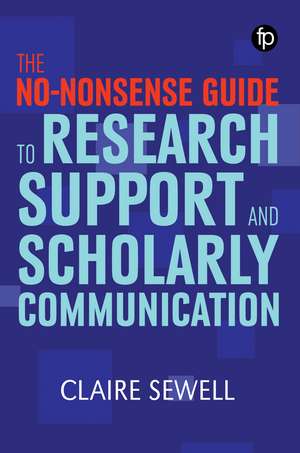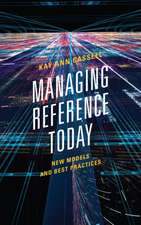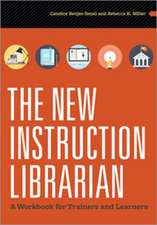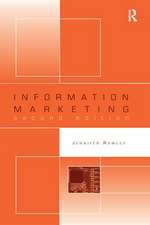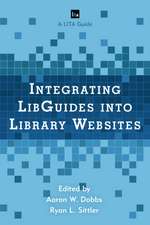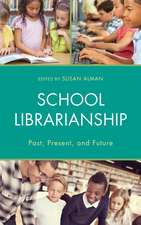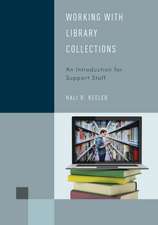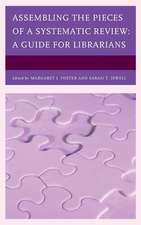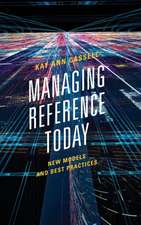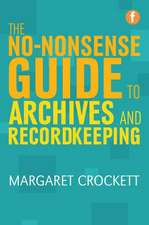No-nonsense Guide to Research Support and Scholarly Communication: Facet No-nonsense Guides
Autor Claire Sewellen Limba Engleză Paperback – 29 noi 2019
Preț: 460.24 lei
Preț vechi: 568.19 lei
-19% Nou
88.07€ • 92.26$ • 72.99£
Carte disponibilă
Livrare economică 18 martie-01 aprilie
Livrare express 01-07 martie pentru 24.82 lei
Specificații
ISBN-10: 178330393X
Pagini: 208
Dimensiuni: 156 x 234 x 13 mm
Greutate: 0.34 kg
Ediția:1
Editura: Facet Publishing
Colecția Facet Publishing
Seria Facet No-nonsense Guides
Public țintă
Professional Practice & DevelopmentCuprins
Notă biografică
Descriere
This accessible and highly practical book provides an introductory guide to the world of research support in the academic library.
Academic libraries have seen huge changes in recent years thanks to the increasing availability of information online but they are now undergoing another shift. As libraries move away from providing access to existing information and towards helping users create new knowledge there is an opportunity for them to develop new services for the research community. To do this successfully libraries need to have a knowledgeable workforce who are equipped to provide the support that researchers need. Information professionals are increasingly being asked to advise their users on issues such as open access and research data management but are often doing so with little or no formal preparation.
Outlining the reasons why library staff need to develop a knowledge of research support and guiding them through the key information on each topic, The No-nonsense Guide to Research Support and Scholarly Communication provides an ideal primer for those who seek to work in this area or those who have acquired these responsibilities as part of a wider role. The practical nature of the book means readers can dip into it or read it from cover to cover as needed. It includes practical checklists of knowledge and skills, international case studies by practitioners from around the globe, end of chapter references, how-to sections, activities and links to freely available online training materials.
The book covers:
- scholarly communication, open research and the research lifecycle
- research data management
- open access
- disseminating research
- metrics and measuring impact including the Journal Impact Factor, H-Index and Altmetrics
- career paths in research support
- why and how library staff at all levels can get involved in the process of doing research and sharing their outputs.
The book will be essential reading for academic librarians who have had research support duties added to their role with little or no formal training or those who have taken on a newly created role and are unsure of how best to use their existing skills or develop new ones suitable for a role in research support. The book will also be of interest to public librarians who may be dealing with supporting their own research communities and those who are considering taking on a career in this growing area but are unsure where to turn for guidance including students studying for postgraduate library qualifications and those who have undertaken qualifications in publishing.
